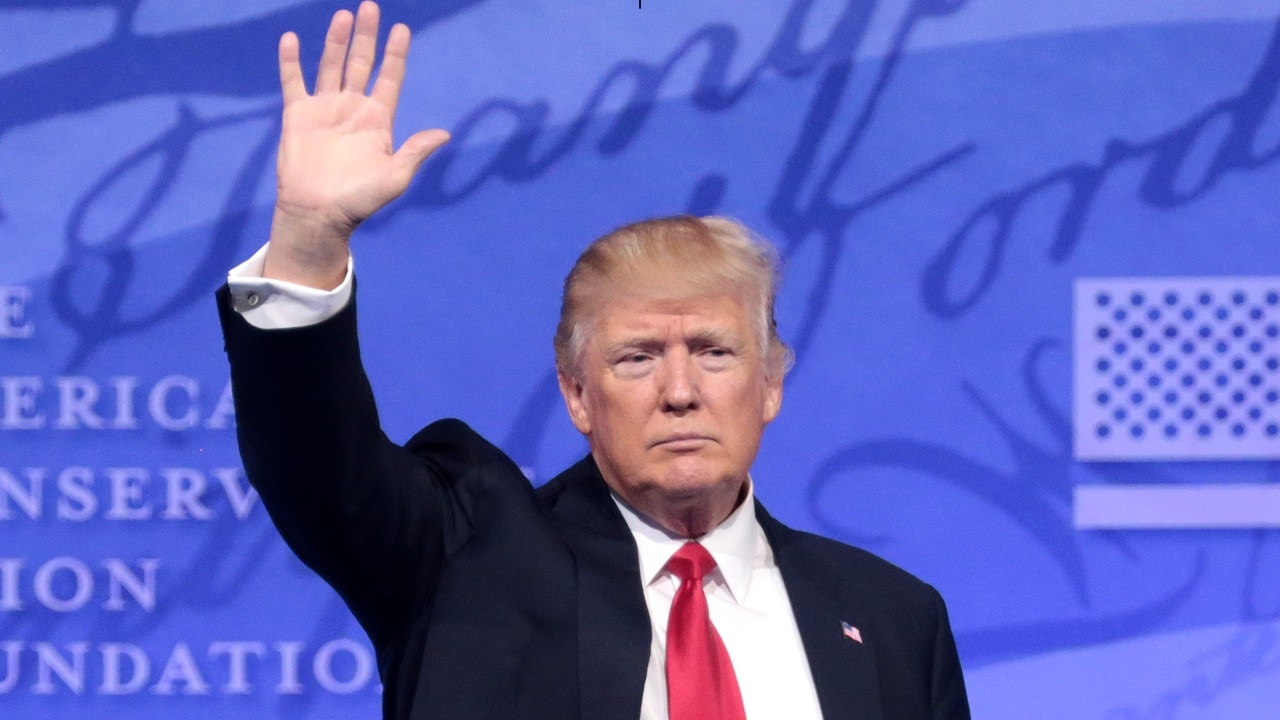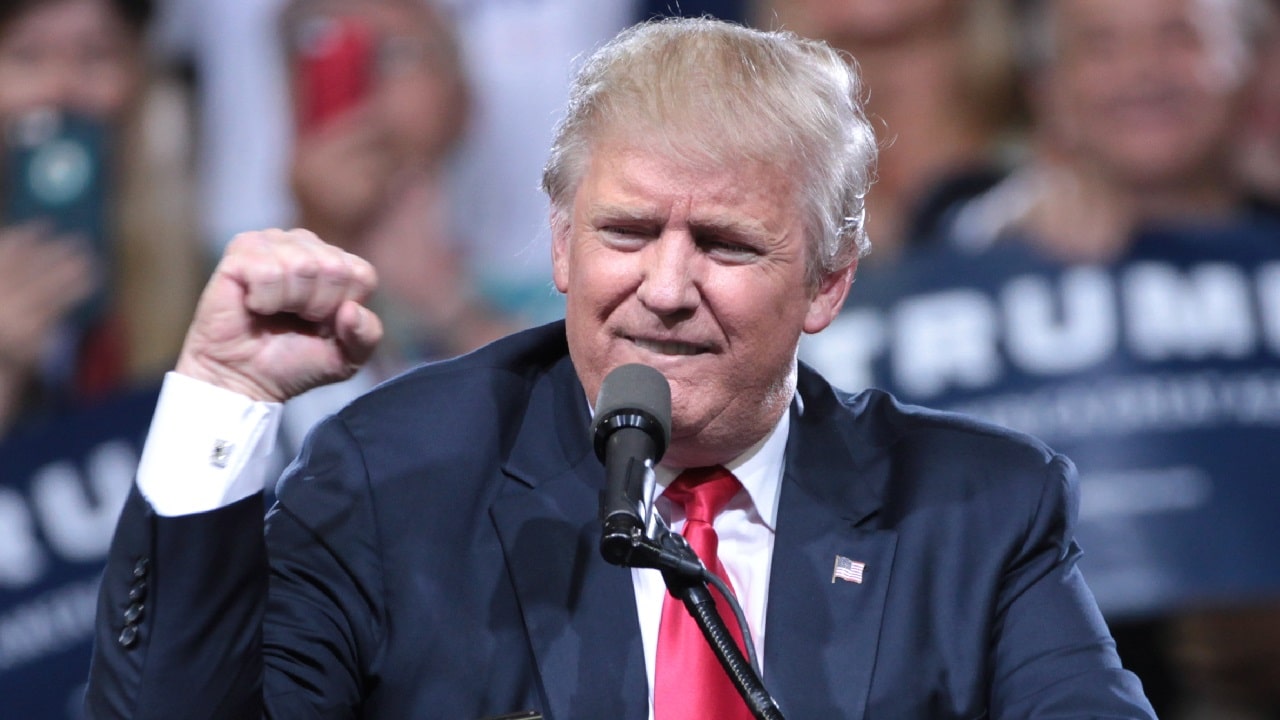Canada has always had a complex economic relationship with the United States. For all our diplomatic efforts and rhetorical flourishes about “special relationships,” the reality is that when it comes to trade, Washington has consistently treated Canada as just another competitor. The latest tariffs imposed by President Donald Trump are no exception. Across Canada, these tariffs are being seen for what they are: a declaration of economic war.
This is not the first time an American president has wielded tariffs as a weapon of economic coercion. The United States has long used protectionism to strong-arm even its closest allies, often in ways that ignore economic logic in favor of domestic political expedience. From the Smoot-Hawley tariffs of the Great Depression to President Nixon’s 1971 decision to impose a 10 percent surcharge on imports and take the U.S. off the gold standard, Canada has frequently found itself caught in the crossfire of America’s economic nationalism. In every instance, Canada has sought exemptions, and in every instance, Washington has refused to grant them.
Now, under Trump, we find ourselves once again targeted by punitive tariffs that serve no broader strategic goal other than to extract short-term political and economic concessions. Canadians, understandably, are livid. This is not just an economic spat; it is an attack on the very foundation of our economic interdependence. Trump’s tariffs strike at the heart of Canada’s industrial base, threatening jobs, investment, and economic stability.
Canadians across the political spectrum are responding with a mix of anger and resolve. The federal government has quickly signaled that it will retaliate with countermeasures, a rare moment of unity in an otherwise fractured political landscape. Even in provinces with traditionally conservative leanings, there is an understanding that this is not just a fight for economic policy—it is a fight for Canadian sovereignty.
Many Canadians are now questioning the wisdom of our continued economic dependence on the United States. Calls to diversify trade relationships have grown louder, with policymakers urging deeper integration with Europe, Asia, and other willing partners. The idea that Canada must seek to “decouple” from the United States has moved from the fringes of political discourse to the mainstream.
At the same time, Canada must address its own internal economic barriers. Inter-provincial trade restrictions remain a self-imposed wound, preventing Canadian businesses from reaching their full potential. If Canada is serious about strengthening its economic resilience, eliminating these barriers should be a national priority. A more unified domestic market will allow Canadian industries to compete more effectively on the global stage, making us less vulnerable to American economic aggression.
As Friedrich Nietzsche once said, “That which does not kill us makes us stronger.” This crisis, while undeniably painful, presents Canada with a rare opportunity: to transform economic adversity into resilience and strength. The tariffs imposed by President Trump may feel like an existential threat to Canadian industries, but they also serve as a catalyst for necessary change. By rethinking our economic dependencies, diversifying trade partnerships, and eliminating internal barriers, we can emerge from this period stronger than before. Trump’s tariffs on Canada are more than just an economic squeeze—they represent a fundamental shift in U.S.-Canada relations. For decades, Canada operated under the assumption that economic integration with the United States provided stability and mutual benefit. While there have always been disputes, the overarching belief was that the U.S. saw Canada as a partner rather than a target. That assumption is now dead.
The notion that Canada can rely on the United States for economic security has been shattered. While some may argue that Trump’s trade policies are merely an aberration, the broader trend suggests otherwise. Protectionism is deeply embedded in American political culture, and history shows that Canada is always one of the first casualties when the United States turns inward.
But this is not just a North American issue. Trump’s tariffs, along with other global economic disruptions, may signal the emergence of a new international economic order. Just as Nixon’s abandonment of the gold standard in 1971 fundamentally reshaped the global financial system, Trump’s aggressive use of tariffs and economic coercion could mark the beginning of a new era in global trade—one that prioritizes raw economic leverage over the rules-based order that has governed international trade for decades.
If this is the case, Canada must adapt quickly. The old assumptions about economic stability and predictability no longer apply. We are entering an era where economic warfare is becoming the norm rather than the exception, and where smaller nations like Canada must build economic resilience or risk being permanently sidelined.
Canada must take immediate steps to reduce its vulnerability to American economic coercion. So, what should Canada do? First and foremost, it is imperative that we stop reacting with shock and surprise every time the United States enacts protectionist policies. History has made it abundantly clear that Washington will always prioritize domestic political considerations over economic fairness, even when it comes to its closest allies.
Canada must take immediate steps to reduce its vulnerability to American economic coercion. This means accelerating efforts to forge deeper trade relationships with other global partners. The Comprehensive and Progressive Agreement for Trans-Pacific Partnership (CPTPP) and the Canada-European Union Comprehensive Economic and Trade Agreement (CETA) offer viable alternatives that must be further leveraged.
Additionally, Canada needs to invest in domestic industries to reduce dependence on American supply chains. This requires a strategic rethinking of our industrial policy, ensuring that Canadian businesses can remain competitive even in the face of American economic hostility. Government incentives, infrastructure investments, and targeted support for key industries must all be part of this effort.
Eliminating inter-provincial trade barriers is another crucial step. If Canadian businesses cannot even sell freely across provincial lines, how can we hope to compete internationally? A truly unified Canadian economy will be far better positioned to withstand external shocks and seize new opportunities abroad.
There is a growing recognition among Canadians that our country needs to take a more assertive stance in defending its economic interests. This moment of economic hardship can be a turning point—one that forces Canada to strengthen its economic sovereignty and adopt a more strategic approach to international trade. Trump’s tariffs have forced us to confront an uncomfortable truth: Canada cannot rely on goodwill or past alliances to protect its economic future.

President of the United States Donald Trump speaking at the 2017 Conservative Political Action Conference (CPAC) in National Harbor, Maryland. Image Credit: Gage Skidmore.
This does not mean abandoning the United States as a trading partner, but it does mean acknowledging that the rules of engagement have changed. Canada must enter future trade negotiations with the understanding that Washington sees economic policy not as a tool for mutual prosperity, but as a weapon to be used whenever politically convenient.
Ultimately, this moment should serve as a wake-up call. Canada must seize this opportunity to build a more self-reliant economy, forge stronger global partnerships, and stand firm in the face of American economic aggression. If we succeed, we may emerge stronger than ever—not just as a nation that can weather an economic storm, but as one that is prepared to thrive in a rapidly changing global order.
About the Author: Dr. Andrew Latham
Andrew Latham is a non-resident fellow at Defense Priorities and a professor of international relations and political theory at Macalester College in Saint Paul, MN. Andrew is now a Contributing Editor to 19FortyFive. You can follow him on X: @aakatham.

